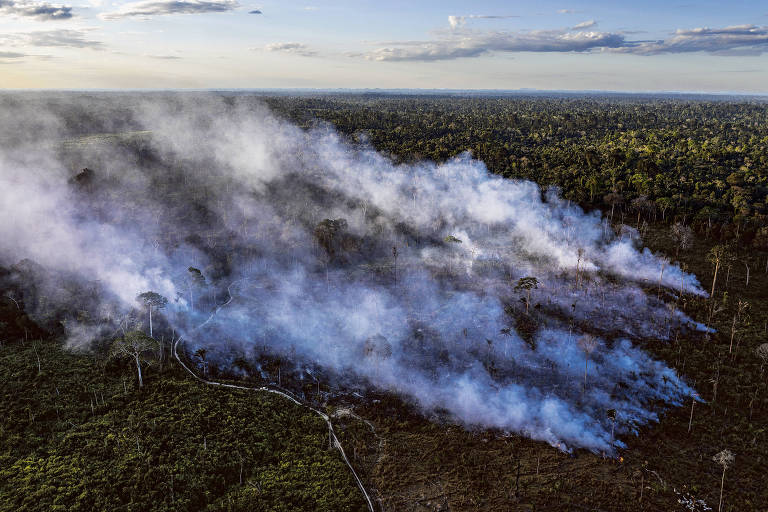Three months after a major Ibama operation against environmental crimes, the Indigenous Land (TI) Trincheira Bacajá, in southeastern Pará, continues to suffer from increased illegal deforestation and the mass presence of non-indigenous people.
Reporting by Folha found a massive forest fire on a dirt road about 20 km from Vila Sudoeste, belonging to the municipality of São Félix do Xingu. The fire had already jumped onto a pasture and threatened the cattle.
The pasture, deforestation, oxen, corral, and road within the TI Trincheira Bacajá, approved in 1996 and inhabited by the Xikrin people, are illegal.
The invasions began in 2016, through illegal roads used to steal wood. Still, deforestation exploded last year, after President Jair Bolsonaro's promises to review indigenous lands' boundaries and open them for agriculture and livestock.
In April, the region underwent a major Ibama operation. The inspectors partially destroyed a wooden bridge to access the IT, built with an embankment of about 300 meters that damaged the banks of the Negro River. In Vila Sudoeste, the environmental agency dismantled two sawmills supplied with illegal wood from the Xikrin territory.
After TV Globo reported about the operation in May, the Bolsonaro government dismissed then coordinator of Ibama's inspection operations, Hugo Loss, and the general inspection coordinator, Renê Luiz de Oliveira.
Then, deforestation started to grow again. There was a loss of 32 hectares in June, compared to just 3 hectares in May, according to satellite monitoring Sirad X, from the Xingu + Network, articulation of indigenous and riverside inhabitants of the Xingu River basin.
Translated by Kiratiana Freelon
